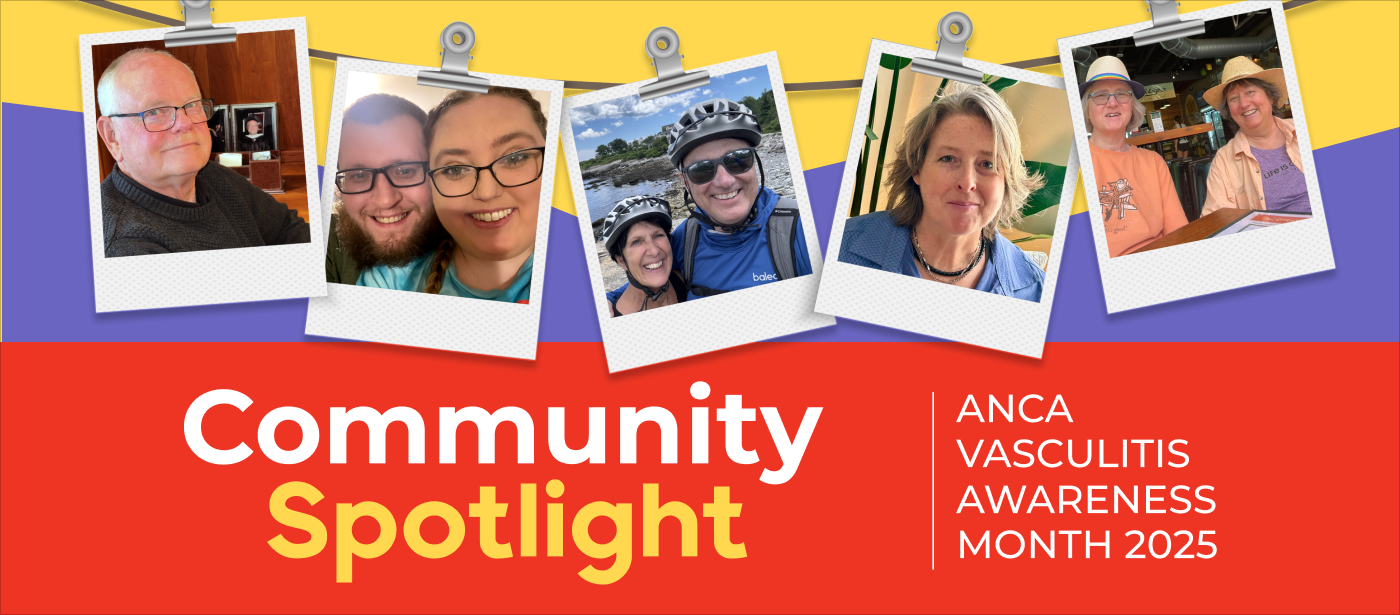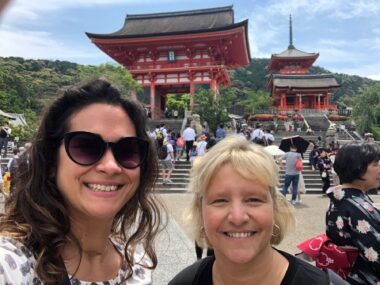How to support a coworker or friend with a chronic illness
Written by |


Andrea Merriam, left, and Sarah Jones attend the World Parkinson Congress in Kyoto, Japan, the year before Jones began experiencing EGPA symptoms. (Courtesy of Andrea Merriam)
This is Andrea Merriam’s story:
The following is a conversation between ANCA Vasculitis News columnist Sarah Jones and her colleague and friend, Andrea Merriam, who is CEO of the Parkinson’s and Movement Disorders Alliance.
SJ: What is your connection to eosinophilic granulomatosis with polyangiitis, or EGPA?
AM: My connection to EGPA is through one of my closest colleagues, friends, and mentors: you. We’d worked together for about four years before your diagnosis. Honestly, you were the reason I changed careers. You taught me so much about nonprofit work, leadership, and life in general. You are a special coworker and friend, and it has been quite a process to both observe and be a part of.
What was it like to support me through my diagnosis and treatment journey?
It was very personal. You were totally open with me, and because you went on leave for a while, I took on many of your responsibilities. We communicated deeply about how you were doing, what symptoms you were dealing with, and the treatments you were trying.
I had a front-row seat to the uncertainty: the false starts, the questions, the hopes, the disappointments, and in particular, the challenges of finding a doctor who would believe you, not belittle you, and take your symptoms seriously. Eventually, there was this resigned kind of relief when you got the diagnosis: “At least I know what it is now.” But honestly, we didn’t know what lay ahead.
The shift involving energy and cognitive load has been intense, and you’ve been so helpful with this. When juggling symptoms, medications, and medical appointments, even small decisions can be exhausting. Just being “on” at work takes so much effort. How did this awareness change how you worked with me?
I became a lot more intentional. One of my dad’s favorite quotes is, “If I had more time, I would have written a shorter letter.” I thought about the mental effort you needed just to read through long, rambling emails from me. So I became more concise, more direct. When your energy is taxed, it’s harder to think. So it was important to make sure I adjusted this. It actually made me a better communicator, not just with you, but with everyone.
What other practical adjustments did you make to collaborate more effectively?
It wasn’t about lowering expectations, it was about adapting. We changed how we structured time, how we communicated. We factored in energy levels, timelines, and emotional bandwidth. These changes helped us work better together.
There are so many people living with chronic illnesses — EGPA or otherwise — who are still working, even if it’s not in the same way they used to. Flexibility is key. And recognizing when there is fatigue. It has worked well. When we meet, we talk for a while, then take a break. You rest and I work on other things. Then we start again.
What would you want other teams or coworkers to understand about working with someone with a chronic illness?
Be open so that the person can be honest with you. It will help both people. Trust that what you can’t see is still real. And don’t make someone feel guilty for needing to adapt their energy or communication; it’s not a failure.
I’m so proud of how we’ve adapted. You have so much experience and insight to share. Our investment in open communication has been completely worth it. Honestly, chronic illness will touch all of our lives in some way, whether it’s us or someone we work with. With intention and adaptation, we can thrive together.
Any final thoughts or hopes for others navigating similar situations?
Creating a psychologically safe workplace where you’re trusted and supported, even when you’re not at 100%, makes a huge difference. I hope people feel encouraged by our story. If you have a diagnosis and want to keep working, or if you want to support a colleague better, you absolutely can. It just takes honesty, flexibility, and care.
In recognition of Vasculitis Awareness Month in May, the ANCA Vasculitis Community Spotlight campaign features a series of stories highlighting the real-life experiences of people affected by vasculitis, written in their own words. Follow us on Facebook, Instagram, and X for more stories like this, using the hashtag #ANCASpotlight, or read the full series.




